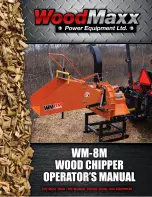
5
1 - SAFETY CONSIDERATIONS
1.1 - General description
Installation, start-up and servicing of equipment can be
hazardous if certain factors particular to the installation are not
considered: operating pressures, presence of electrical
components and voltages and the installation site (elevated
plinths and built-up structures).
Only. properly. qualified. installation. engineers. and. highly.
qualified.installers.and.technicians,.fully.trained.for.the.product,.
are authorised to install and start-up the equipment safely.
During all servicing operations all instructions and recom-
mendations which appear in the installation and service
instructions.for.the.product,.as.well.as.on.tags.and.labels.fixed.
to the equipment and components and accompanying parts
supplied separately, must be read, understood and followed.
Failure to comply with the instructions provided by the
manufacturer may result in injury or product damage.
• Apply all standard safety codes and practices.
• Wear safety glasses and gloves.
• Use the proper tools to move heavy objects.
• Move units carefully and set them down gently.
1.2 - Safety precautions
Only.personnel.qualified.in.accordance.with.IEC.(International.
Electrotechnical Commission) recommendations may be
permitted access to electrical components.
It is particularly recommended that all sources of electricity
to the unit be shut off before any work is begun. Shut off the
main power supply at the main circuit breaker or isolator.
IMPORTANT:
This equipment conforms to all applicable
codes regarding electromagnetic compatibility.
RISK OF ELECTROCUTION!
Even when the main circuit breaker or isolator is switched
off, specific circuits may still be energised as they may be
connected to a separate power source.
RISK OF BURNS!
Electrical currents may cause components to get hot.
Handle the power cable, electrical cables and conduits,
terminal box covers and motor frames with great care.
2 - CONTROLLER OVERVIEW
2.1 - Control system
30WG / 30WGA / 61WG units come with the
Touch Pilot Junior
control.that.serves.as.a.user.interface.and.a.configuration.tool.
for controlling the operation of the unit(s).
2.2 - System functionalities
The system controls the start-up of the compressors needed
to maintain the desired heat exchanger entering and leaving
water temperature. It constantly manages the operation of
the unit to maintain the correct refrigerant pressure in each
circuit and monitors safety devices that protect the unit
against failure and guarantee its optimal functioning.
Touch Pilot Junior controls:
• compressor start-up to control the water loop
•
fixed.or.variable-speed.pumps.to.optimise.water.loop.
operation
•
fan.stages.for.units.fitted.with.a.dry.cooler.or.30WGA.
units with a remote condenser
2.3 - Touch Pilot Junior components
The controller manages a number of mechanisms that allow
the unit to operate effectively, including the following:
• 4.3’’ touch screen
• BMS connection
• Scroll compressor technology
• Diagnostics
• Web connectivity / e-mail transmission
• Cooling control / Heating control
• Boiler control
• Domestic hot water production (optional)
• Free Cooling Dry Cooler control (optional)
• Condenser dry cooler control (optional) – only LEN
connector provided (dry cooler installed separately)
2.4 - Operating modes
The control system can operate in three independent modes:
• Local mode:
The unit is controlled by commands from
the user interface.
• Remote mode:
The unit is controlled by dry contacts.
• Network mode:
The unit is controlled by network
commands (CCN or BACnet). Data communication
cable is used to connect the unit to the proprietary
protocol communication bus.
When the control operates autonomously (Local or Remote),
it retains all of its control capabilities but does not offer any
features of the Network.
IMPORTANT:
Emergency stop!
The Network emergency stop command stops the unit
regardless of its active operating type.






































